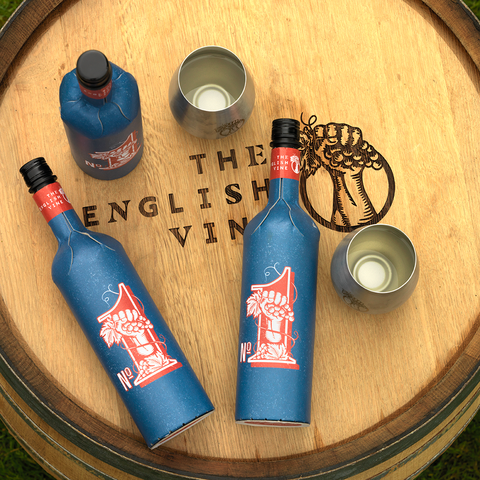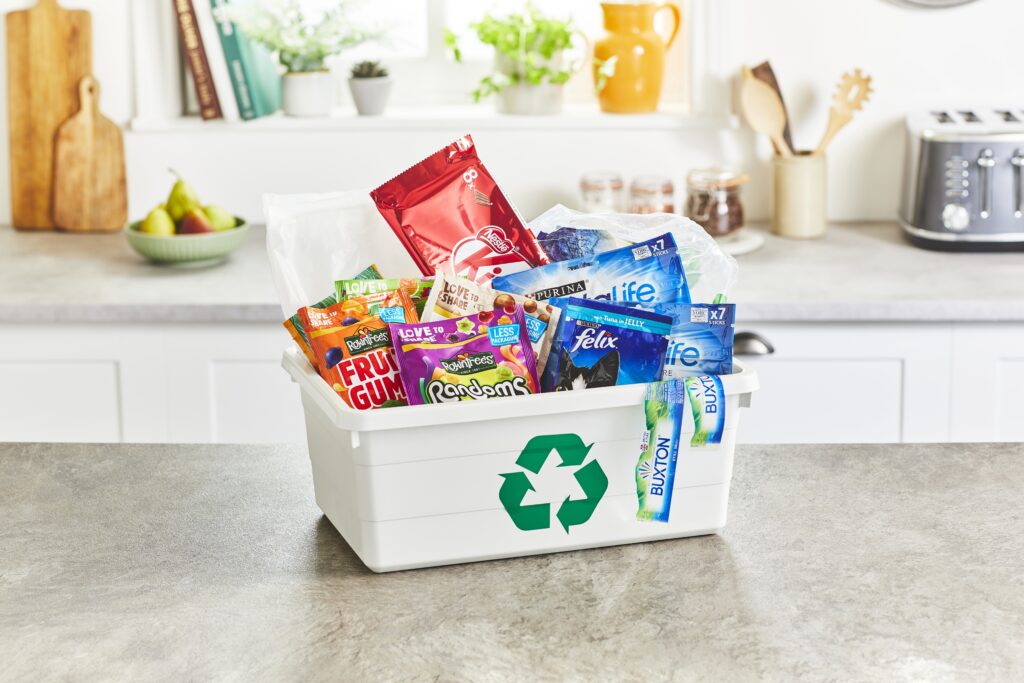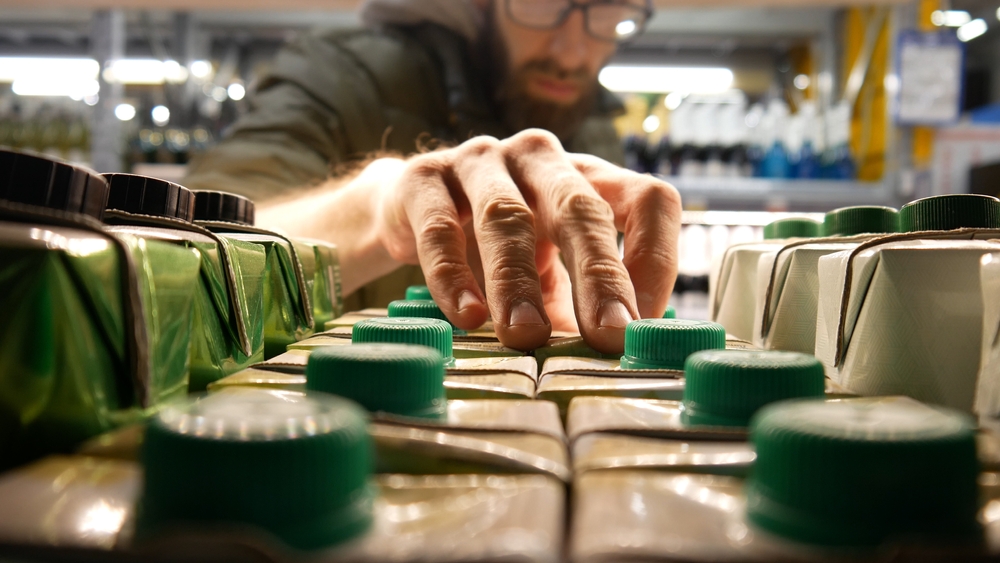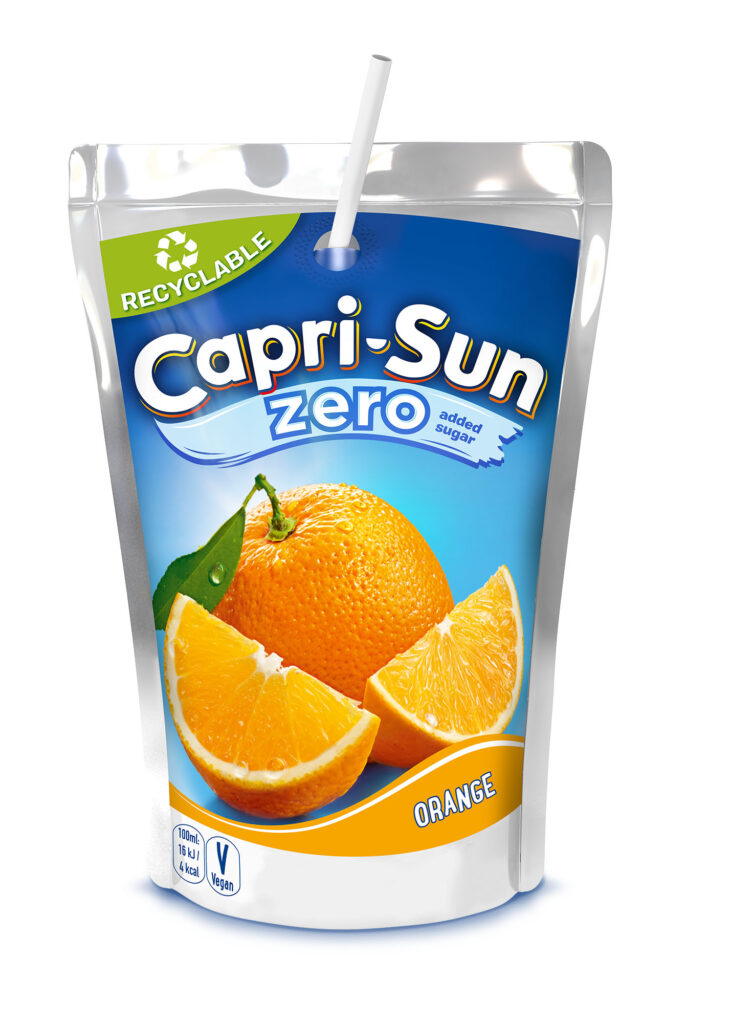The Frugal Bottle, made by British sustainable packaging company Frugalpac, is said to be five times lighter than the glass equivalent.

A food grade pouch sits inside the paper packaging of the bottle to keep wine sealed and secure.
However, companies switching to paper alternatives hasn’t been widely welcomed.
Some packaging experts question the recyclability of some new packaging, while the trade association British Glass says glass bottles remained the “overwhelmingly best option” for wine, because they are made from a single “entirely and endlessly recyclable” material.
‘No reason not to change’
The English Vine claims the move is a first in the UK for English wine.
In a statement, The English Vine’s founder Neil Walker said that apart from in certain areas of winemaking where glass bottling was required, there was no reason for others not to make the change to paper bottles other than “misplaced preconceptions about packaging for wine”.
“Your wine will be just as enjoyable and high quality in a more environmentally friendly packaging such as our new paper bottles”
Neil Walker
The English Vine
He said: “I think consumers often view the non-glass packaged options of wine as lower quality, perhaps because in the past it’s fair to say there were some more mass-produced or perhaps lower quality wines which have used this form of packaging.
“However, we want to lead the way to show that your wine will be just as enjoyable and high quality in a more environmentally friendly packaging such as our new paper bottles.”
The paper bottles will enable The English Vine to make half of its wine packaging non-glass, the company said.
The English Vine also plans to roll out a ‘bottomless bottle service’ for customers in Essex. Customers will be able to top up refillable bottles from kegs fitted to an electric wine van.
Carbon footprint
The English Vine said research showed 46% of a bottle of wine’s carbon footprint could be attributed to its packaging. The weight of a glass bottle and its transportation are among the factors which contribute.
The English Vine has committed to producing all its wine in paper bottles within the next five years.
The company cited a recent poll by Survation of 1,700 UK wine drinkers which found 63% would buy wine in a paper bottle.
Glass
However, not everyone is convinced that paper is a better material than glass in which to bottle wine.

Phillip Fenton is lead packaging and recycling adviser at trade association British Glass. He told letsrecycle.com that glass bottles remained the “overwhelmingly best option” for wine, because they are made from a single “entirely and endlessly recyclable” material.
By contrast, he said the plastic pouch contained within the paper bottle was “difficult to recycle in the current household recycling systems in the UK”.
Mr Fenton also said the glass industry had taken “great strides” to address the weight of a glass bottle and its transportation. He said: “In the last 15 years the average weight of a glass bottles has seen a 40% reduction through the process of lightweighting and nearly 40% of wine sold in the UK is bulk imported and filled in UK-manufactured bottles, reducing the CO2 emissions from transport by over 40%.
“We understand that improvements need to be made in all forms of packaging to reduce the impact on our planet and when compared to each other, there will be pros and cons for each material.
“But we still believe that the natural qualities of glass, including its endless recyclability and inert nature, make it the best choice for the wine market, both in the present and for the future.”
Paper
Several companies have announced in recent weeks that they would switch their packaging to paper to make it more sustainable.
Unilever announced on 11 June that it will be trialling a switch in the packaging of its leading laundry detergent from plastic to paper, with the first bottles to be rolled out in Brazil in early 2022 (see letsrecycle.com story).
The moves prompted concern from some within the recycling sector about a potential added layer of uncertainty within plastic waste recycling streams. There are also questions about the recyclability of the liners.












Subscribe for free